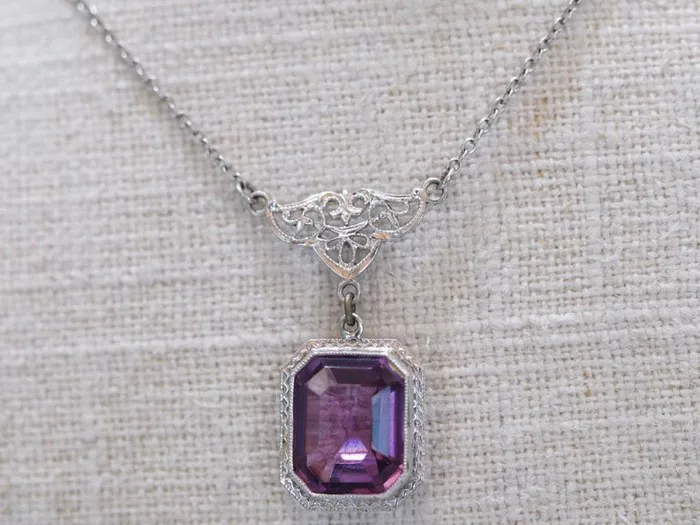A recent episode of the Antiques Roadshow, a popular daytime series on PBS, witnessed a guest’s astonishment as an expert uncovered the truth behind an heirloom necklace. The guest, hopeful of revealing a gem with royal connections, presented an amethyst necklace to expert Sarah Churgin, claiming it had once belonged to the famed socialite Lillie Langtry.
According to the guest, the necklace had been passed down through generations, purportedly acquired at auction in 1929 in Atlantic City, coinciding with Langtry’s passing. The allure of royal association stemmed from Langtry’s affinity for amethyst, a detail shared with the guest’s family history.
However, Churgin’s analysis quickly cast doubt on the necklace’s authenticity. She pointed out discrepancies in its history, notably questioning how a piece of royal provenance ended up in New Jersey. Further scrutiny revealed alterations to the necklace’s original mounting, indicating a departure from its purported royal origins. Churgin highlighted the absence of maker marks and the mismatched characteristics of the piece, such as platinum mounting and a white gold clasp, typical of the late 1920s.
Delving deeper, Churgin uncovered unsettling details about the auction house involved in the necklace’s purchase. The revelation that Harold A Brand, the auctioneer, faced fraud charges in 1949 added another layer of suspicion to the necklace’s provenance.
The guest’s reaction was one of shock and disbelief as the truth behind the necklace’s history unfolded. Despite the disappointment of dashed royal connections, Churgin acknowledged the necklace’s value as a fine example of art deco jewelry from the late 1920s. However, its true origins remained shrouded in uncertainty, leaving behind a tale of intrigue and suspicion.

